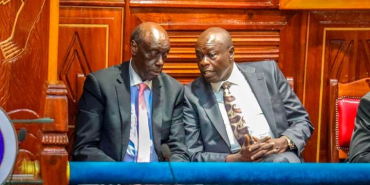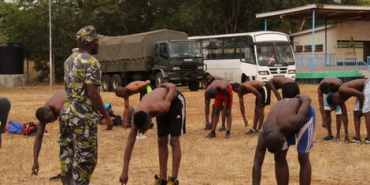Tanzanian Activist Narrates How She Survived Four-hour Kidnapping in Nairobi

Prominent Tanzanian political activist and businesswoman Maria Sarungi has recounted a distressing experience of abduction in Nairobi that has ignited international outrage and underscored broader issues of cross-border human rights violations.
The incident occurred Sunday afternoon after Ms Sarungi left a local salon in the Kilimani area. She was forcibly taken from her taxi by four armed men who presented themselves as police officers, raising serious questions about the legitimacy of their actions and the protection of civil liberties. The unfolding events began shortly after 3 PM.
Sarungi had informed her husband, David Tsehai, of her plans to return home, unaware she was being monitored. The situation escalated dramatically when a black Toyota Noah blocked her taxi. The armed men overpowered her during a struggle, blindfolding and handcuffing her.
Inside the vehicle, Sarungi faced a harrowing ordeal as one captor restrained her while another interrogated her in Swahili, attempting to extract sensitive personal information. Sarungi cleverly responded in English, deflecting their efforts and raising suspicions about the authenticity of their claims to be police officers, noting the lack of standard protocols typically associated with legitimate detentions.
As the journey extended beyond what would ordinarily lead to the nearest police station, Sarungi was gripped by anxiety. She feared she was being taken to Tanzania under orders from the government, which was aimed at punishing her outspoken criticisms of its policies. The presence of a captor with a Tanzanian accent deepened her concerns regarding the potential involvement of Tanzanian authorities.
After a prolonged and unsettling journey, the vehicle stopped in a secluded area where the captors conferred away from Sarungi, affording her a moment of vulnerability. Upon their return, they unexpectedly declared her free but cautioned her against looking back or discussing the incident. Alone and disoriented as night fell, she navigated her way back to safety, ultimately managing to secure a taxi despite the loss of her phone.
Once home, Sarungi expressed her gratitude to the Kenyan public for their swift response, which amplified her plight. Social media campaigns calling for her release gained momentum, and international human rights organizations quickly mobilized in her defence, likely increasing pressure on her captors. Reflecting on her ordeal, Sarungi says that the harrowing experience has only intensified her commitment to advocating for human rights in Tanzania.
Rather than silencing her voice, the abduction has fortified her resolve to confront injustices. This incident highlights a troubling trend of transnational repression, especially concerning asylum seekers and political dissidents in Kenya. Amnesty International has noted a rise in similar cases in recent months, pointing to a growing concern about governmental collusion across borders.
Recent reports of abductions of opposition members from Uganda have intensified fears regarding the safety of expatriates and activists in Kenya, a country historically viewed as a refuge for those escaping political persecution. The Law Society of Kenya has called for accountability and a comprehensive investigation into the circumstances surrounding Sarungi's abduction.














Add new comment